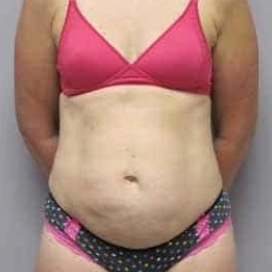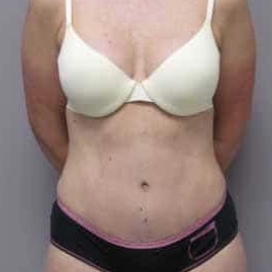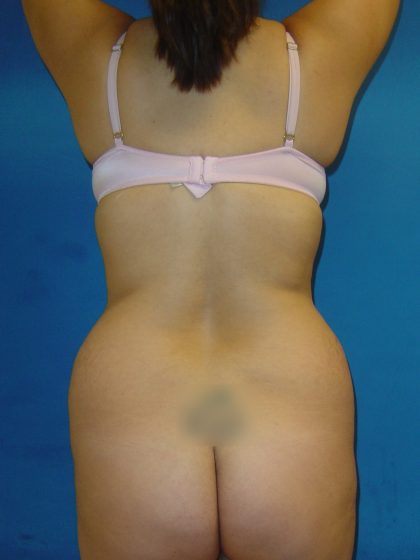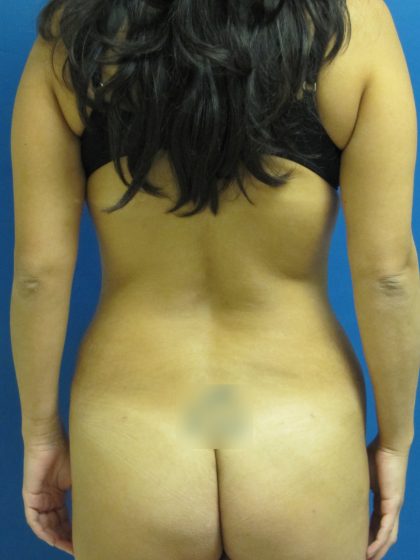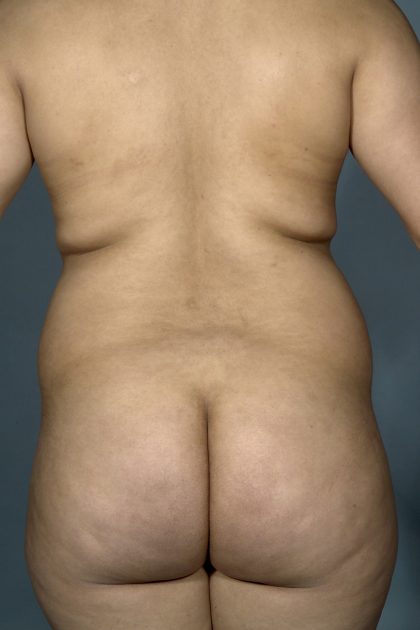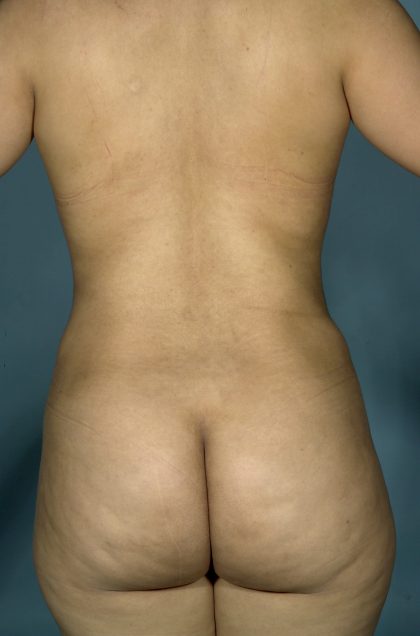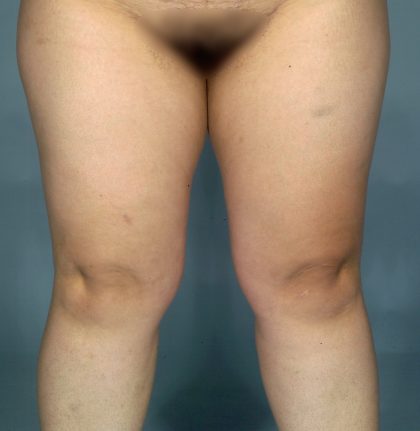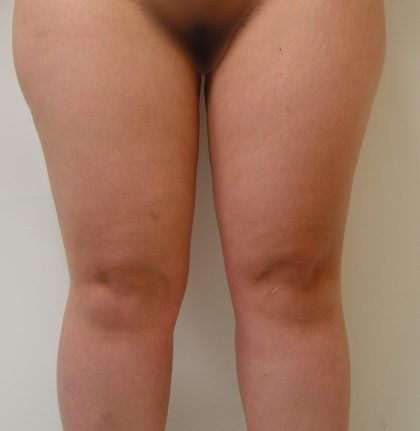Liposuction
Conveniently located to serve the areas of Pasadena, CA

Liposuction is one of the most popular cosmetic surgery procedures performed today. Liposuction permanently removes stubborn fat cells that have not responded to diet and exercise.
Where the body stores fat is largely due to genetics. Some of us are “top-heavy” and keep extra fat in the upper body, while others tend to store excess fat in the midsection or legs. Liposuction can remove excess fat from your problem areas. Your surgeon can perform liposuction in one area only or multiple areas, depending on your goals. If you have trouble spots that prevent your clothes from fitting properly and impact your self-esteem, liposuction may be right for you!
All liposuction procedures performed by Dr. Caroline Min begin with a personal consultation. This appointment allows you to discuss your goals and have your problem areas examined by trained medical staff. Schedule your consultation today by completing our online contact form. If you have any further questions, please feel free to call or text our Pasadena office at (626) 737-9001 to gather any additional information you need.
Contents
- 1 Before and After Photos
- 2 About Liposuction
- 3 Benefits
- 4 Candidates
- 5 Personal Consultation
- 6 Preparation
- 7 Procedure
- 8 Recovery
- 9 Results
- 10 Corresponding Procedures
- 11 Cost of Liposuction in Pasadena
- 12 FAQ
- 12.1 How is liposuction performed?
- 12.2 What are the differences between power-assisted, ultrasonic, and laser liposuction?
- 12.3 Is any one liposuction technique better than the others?
- 12.4 How long does liposuction take?
- 12.5 How much fat can be safely removed by liposuction?
- 12.6 What is recovery from liposuction like?
- 12.7 Will I weigh less after liposuction?
- 12.8 Will liposuction improve cellulite?
- 12.9 Are the results from liposuction permanent? What happens if I gain weight afterward?
- 13 References
Before and After Photos
About Liposuction
The human body stores fat in different layers. While some fat is essential for bodily functions, excess fat can affect our contours and self-image. (1) Liposuction targets unwanted fat deposits to sculpt a more proportionate figure. Each person’s body is unique, and sometimes certain areas hold onto fat despite active lifestyles. This can lead to frustration and discomfort regarding one’s appearance.
Liposuction is a great option for patients who are in good overall health but have specific problem areas that are resistant to exercise and dieting. Liposuction does not typically address skin laxity, but we can recommend additional body contouring procedures as part of your treatment plan if you want to address sagging skin.
Liposuction removes fat cells with gentle suction, improving your body shape and enhancing overall aesthetics. Liposuction can safely remove fat from many different areas. (1) In the face, Dr. Min can remove excess fat from the neck and along the jawline. In the body, she can remove fat from areas like the upper arms, the pouches in front of the armpits, chest, back, abdomen, waist, hips, buttocks, inner and outer thighs, knees, and calves. Over time, technological advancements have made the procedure safer, with reduced downtime and discomfort.
Benefits
Liposuction offers many benefits; under the expert guidance of Dr. Min, our patients often see results like:
- Improved body contours: Liposuction helps create a more proportionate and aesthetically pleasing figure by removing unwanted fat.
- Enhanced self-confidence: With a more defined body shape, many patients report increased self-esteem and a more positive body image.
- Targeted fat removal: Liposuction allows for precise targeting of stubborn fat pockets that resist diet and exercise.
- Versatile treatment areas: Dr. Min can perform liposuction on several areas, including the abdomen, thighs, arms, back, and neck, providing customizable results.
- Minimal scarring: The incisions made during liposuction are small, often resulting in inconspicuous scars.
- Complementary to other procedures: Liposuction can enhance the results of other cosmetic surgeries, such as tummy tucks or breast augmentations.
Candidates
Ideal candidates for liposuction include individuals who:
- Are in good overall health
- Have realistic expectations about body contouring
- Are near their target weight but struggle with localized fat deposits
- Do not have significant skin laxity in the treatment area
- Are not pregnant, nursing, or planning to have children in the near future
It is important to note that liposuction is a body-contouring method, not a weight-loss treatment. Patients should be at or near their ideal goal weight before undergoing liposuction. A consultation with Dr. Min can determine your suitability for liposuction and establish a customized treatment plan tailored to your needs.
Personal Consultation
Your liposuction journey begins with a consultation with Dr. Min. At this appointment, we will conduct a physical examination, evaluate your medical history, and discuss your aesthetic concerns. This conversation will also clarify what you hope to achieve with liposuction, enabling us to develop a tailored plan.
We will assess the areas you want to improve, review potential techniques, and present anesthesia options. We will also discuss realistic outcomes and any questions you may have regarding the procedure, recovery, and expected results.
This initial meeting is an essential step to ensure that, together, we craft a successful treatment strategy that meets your goals.
Take a moment to schedule your consultation online today. If you have further questions or would prefer to schedule over the phone, please call or text our Pasadena office at (626) 737-9001.
Preparation
Once we schedule your liposuction procedure, you will receive detailed pre-operative instructions. Following all instructions diligently will help optimize your surgical outcome and recovery time. The instructions you receive will be specific to your medical history and planned procedure goals, but common requirements include:
- Discontinuing medications that can increase bleeding.
- Avoiding nicotine use in the weeks leading up to your surgery.
- Arranging for someone to drive you home after the procedure.
- Preparing your home for a comfortable recovery period by having essentials nearby.
Procedure
Either local or general anesthesia is used during liposuction, depending on the size of the areas being treated as well as other factors. Dr. Min will carefully inspect and mark the targeted areas. The liposuction procedure begins with the injection of a solution composed of salt water, a local anesthetic, and a small amount of adrenaline. This is referred to as “tumescent” fluid and it allows the fat to be removed more easily with decreased bruising and bleeding. (1) After injecting the tumescent fluid, Dr. Min will make small incisions into your targeted treatment areas, through which she will insert a liposuction cannula to dislodge fat and remove it from the body with suction. (1) After achieving the desired results, Dr. Min will close the incisions with sutures and bandages. The procedure may last from one to four hours, depending on the amount of fat being removed.
Recovery
During your recovery, you may experience some swelling, bruising, and soreness in the treated areas, which should subside gradually over time. Dr. Min may ask that you wear compression garments to help support your new contours while you heal. These garments will also help reduce swelling.
We generally advise patients to avoid strenuous activities for at least a couple of weeks, allowing your body to heal properly. Most patients return to light activities within a week and resume normal routines shortly afterward.
Results

The full results from liposuction become more evident as swelling subsides. It is common for patients to see some initial weight gain after their procedure, but this is often due to swelling and will decrease as you continue to heal. (2) Patients typically observe a slimmer, more sculpted appearance after liposuction. One of the main reasons behind liposuction’s widespread popularity is its high patient satisfaction rate. (2)
Corresponding Procedures
One of the most common treatment zones for liposuction is the abdomen. Many patients will combine a liposuction treatment with an abdominoplasty (tummy tuck). In these procedures, Dr. Min makes an incision along the lower abdomen and removes excess tissue. For patients with diastasis recti, which is the separation of the abdominal muscles from each other, Dr. Min can address this condition by bringing the muscles back together. This helps patients improve their core strength and enhance the results of their procedure.
Cost of Liposuction in Pasadena
After you meet with Dr. Min to discuss your goals, you will receive a comprehensive price estimate for your procedure. Schedule your consultation appointment today to begin planning your treatment. If you have any questions about pricing, preparation, payments, procedures, or more, please call or text our Pasadena office at (626) 737-9001 and get the information you need.
FAQ
How is liposuction performed?
The areas to be treated are carefully inspected and marked. The liposuction procedure begins with the injection of a solution composed of salt water, a local anesthetic, and a small amount of adrenaline. This is referred to as “tumescent” fluid and it allows the fat to be removed more easily with decreased bruising and bleeding. The fat is removed with a cannula that is connected to a suction device through very small incisions that are strategically placed to minimize visibility.
What are the differences between power-assisted, ultrasonic, and laser liposuction?
All of these methods are adjunctive techniques to help remove the fat more easily. Power-assisted liposuction uses a vibrating cannula to break up the fat. Ultrasound uses ultrasonic energy to break up fat cells and laser liposuction uses a laser to melt fat.
Is any one liposuction technique better than the others?
The most important part of performing liposuction is removing the fat evenly and making sure that just the right amount of fat is removed. All of these techniques get the job done. Ultrasound and laser liposuction are good for removing very fibrous fat such as that found in male gynecomastia (enlarged male breasts) but can have additional complications such as burns and fluid collections.
How long does liposuction take?
The procedure may last from one to four hours, depending on the amount of fat being removed. Either local or general anesthesia is used, depending on the size of the areas being treated as well as other factors.
How much fat can be safely removed by liposuction?
A large amount of fat can be removed in the outpatient setting, up to 5 liters.
What is recovery from liposuction like?
After liposuction surgery, you will have some bruising and swelling. You may also have leakage of fluid from the incisions for a short period of time. A compression garment is worn for approximately two weeks. Most patients take a week off from work although some may return to work within a few days. Strenuous activity should be avoided for about a month. When the initial swelling subsides, you should see a significant improvement in your shape, although it takes up to a year for all trace amounts of swelling to resolve.
Will I weigh less after liposuction?
You will notice an improvement in your shape and contour rather than a significant drop in your weight. This is because fat cells do not weigh that much but take up space. After your liposuction procedure, you may go down in clothing size because you have lost fat in key areas that affect your body shape.
Will liposuction improve cellulite?
Generally, liposuction does not improve dimpling caused by cellulite.
Are the results from liposuction permanent? What happens if I gain weight afterward?
The results of liposuction are permanent in that the fat cells that are removed do not grow back. With weight gain, the remaining fat cells in your body will swell, not multiply. So if you gain a significant amount of weight after your surgery, you will get larger in all areas, not only in the areas that were treated.
References
- Bartow MJ, Raggio BS. Liposuction. PubMed. Published 2022. https://www.ncbi.nlm.nih.gov/books/NBK563135/
- Bellini E, Grieco MP, Raposio E. A journey through liposuction and liposculture: Review. Annals of Medicine and Surgery. 2017;24:53-60. doi:https://doi.org/10.1016/j.amsu.2017.10.024
